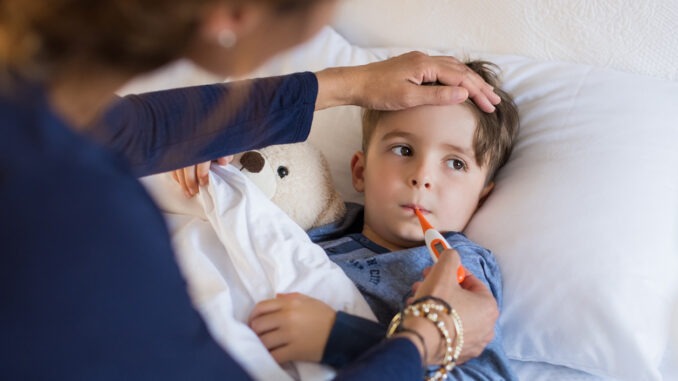
As reported by the BBC, pupils at schools with cases of streptococcus A could get preventative antibiotics after nine children died from infections linked to the bacteria
Schools minister Nick Gibb said the use of antibiotics “is an option” and the issue had been raised in the House of Lords on Monday.
One of the latest deaths is thought to be of a five-year-old girl who attended a Belfast primary school.
The authorities are working closely with the school.
Across the rest of the UK, eight children have died due to complications from strep A bacterial infections since September.
Updated UK guidance on scarlet fever outbreaks (which are caused by strep A) in October, says antibiotics can be used to help stop new cases of strep A in settings such as schools but a decision should be taken with local outbreak-control teams on ‘a case-by-case basis’.
Adam Finn, professor of paediatrics at the University of Bristol, told BBC News the bar for treatment may now be lowered.
“The standard guidelines are that you wait for two cases in an institution like schools before you go out with antibiotics… but given the number of cases and the concerns that obviously exist at the moment, those guidelines may well be adjusted and we may see more broad antibiotic use.”
Mr Gibb told GB News: “Lord Markham said in the House of Lords yesterday that the UK Health and Security Agency are monitoring the position and are considering those kind of issues in those schools where there is an infection.
“This is an ongoing situation, the UKHSA are involved very closely with those schools and they will be providing further advice later on.
“But that may well be an option for those particular schools where there is an infection.”
Meanwhile, health minister Maria Caulfield has said there is “no shortage of antibiotics” to deal with the rise in strep A infections.
She said: “We want to reassure parents if their children do have symptoms and they are concerned to seek help. GPs are ready, A&E departments are ready, and also we have directors of public health proactively going into schools where there are cases.
“There is no shortage of antibiotics, we want to reassure people of that, and we are keeping an eye on that on a daily basis.”.



Be the first to comment